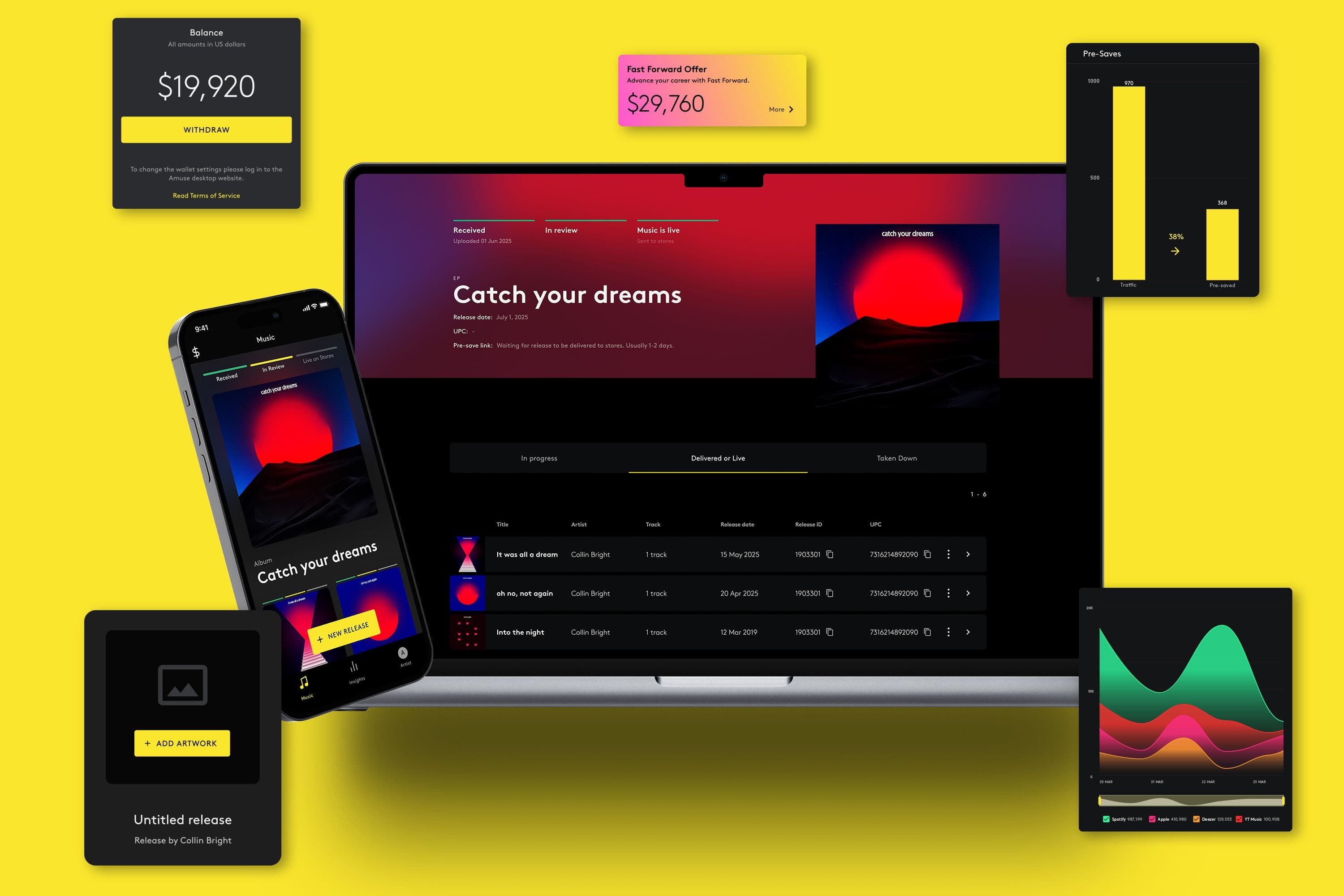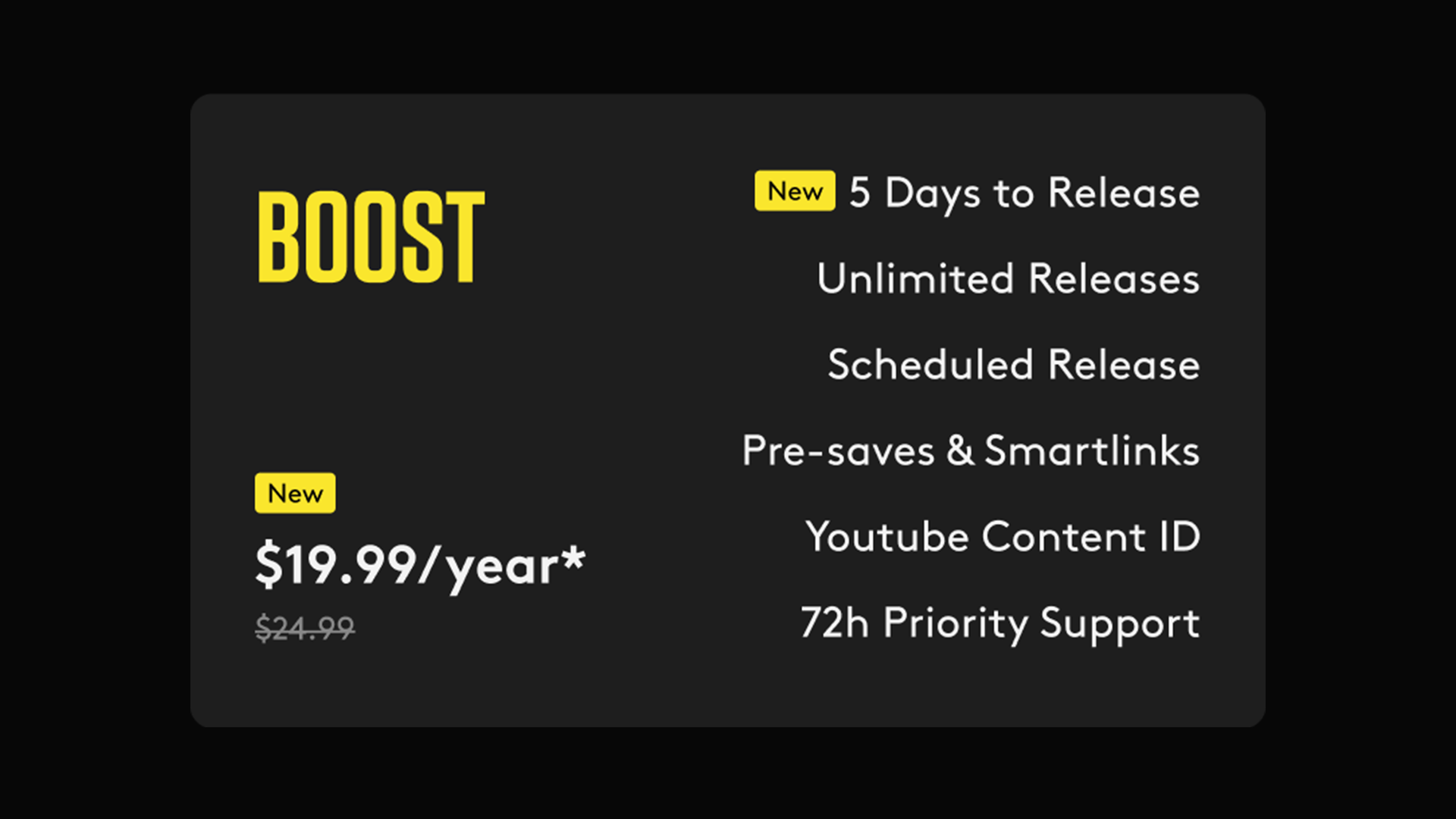How to Choose the Right Music Manager
From building your brand to negotiating business deals, read this checklist before hiring your first music manager.
Amuse, amuse
A music manager is one of the most important people in any artist’s team — they’ll help you build your brand, negotiate business deals, and will bring in pre-existing relationships with labels, agencies, publicists, and promoters.
So whether you’ve been approached by a manager or are looking for representation for the first time, we put together a checklist to help you make a more informed decision.
Key Qualities of a Music Manager
Complete understanding of the music industry, with a focus on the business side
Long-standing relationships with promoters and labels
Experience with contract and intellectual property law, negotiating deals, licensing and publishing contracts
Proven track record of booking shows, festivals, and tours
Case studies of successful release marketing campaigns
… and most importantly, make sure they are enthusiastic about your music. You shouldn’t have to convince them of why they should support your music. They should believe in you as much as you do.
How To Find A Music Manager
LinkedIn:
You can search for managers by job role, location or place of work. Just search for “Music Manager” or “Artist Manager” and adjust the settings to your country/city and connect with anyone who seems like a fit. You can also run ads about your latest release, targeting anyone with the “Music Manager” job title (this means your music will get in front of the right people and you might get some reaching out to you instead).
Instagram:
If you can’t connect with someone on LinkedIn, search their name on Instagram and follow them. Once they accept, send them a DM with some track links to make them aware of your artist project and thank them for their support. Once you’ve had some dialogue back and forth, ask them if they’d be open to a chat about management.
Live Shows:
When a manager has a passion for up-and-coming independent artists, you’ll usually find them hanging out at live gigs or showcases. This is where they scout new local talent.
Management Companies:
The easiest way to find music management companies in your city is by googling (but make sure they specialise in your niche). Once you’ve found one that looks like a good fit, send them an email with your EPK that includes links to your music, imagery, touring history, audience data and your social statistics. Don’t have one yet? Read our guide for creating an EPK here.
Networking Events:
We know you’ve got your head down in the studio, but getting out there and building your network is a critical part of every artist’s journey. Network as much as you can within your local scene (post-covid, obvs), by hitting up club nights, festivals or industry parties. Music managers are constantly attending these events to meet new artists and grow their own networks. Hit up The Music Managers Forum or The Digilogue for upcoming online & IRL events.
Bonus tip: Arrive a few minutes early and introduce yourself to the event organiser - they will know the most important people at the event and can help introduce you.
Ask Other Artists For Recommendations
Before you start cold emailing managers, start by asking the artists around you for recommendations. Talk with any peers in your community or music niche who may be playing bigger shows or have a wider audience, and ask who they’ve worked with and if there is someone they can recommend.
Check References
Got a manager candidate in mind? Ask them for references. Chat to the other artists (either by phone, email or DM) to learn a little more about their management style and decide if they will be a good fit. If they’re a more established manager with a high-profile artist roster, it’s better to ask for examples of previous tour bookings, marketing case studies, or post-campaign release reports.
Keep It Official
No matter what stage you’re at in your career, you need to remember that your relationship with your manager is a business arrangement. Even if they’re a friend, it should never be a verbal contract — you need to record every decision in writing. Keep records of paperwork, have deadlines and set performance goals. Remember to have any legal contracts reviewed by an entertainment lawyer. On a DIY budget? Post an ad on Upwork and set your one-time fee offer.
Bonus tip: Set terms for a “trial period” in your contract (usually 3 months). If you don’t see any results after a few months working with them, you can back out of the partnership with no hard feelings.


